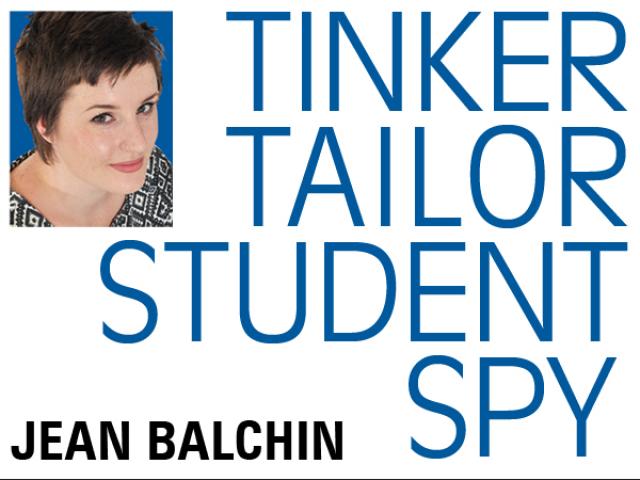
Every so often, well-meaning relatives and family friends ask me where I study. ‘‘Oh, you’re from Dunedin?’’ they cry with fascinated delight, ‘‘how are the toga parties going down there? Do you actually get any study done?’’
Swallowing my irritation, I glibly reply: ‘‘Of course, when I’m not toasting marshmallows on couch fires.’’
Mention the word ‘‘scarfie’’ and a horde of hooligans, gleefully pelting each other with hard-boiled eggs and setting North Dunedin ablaze with couch fires comes to mind. Dubbed ‘‘scarfies’’ for the scarves required in a Dunedin winter, Otago University students make up a sixth of the city’s population. Admittedly, while a few of us certainly do live up to our bad reputation, the majority of Dunedin students are actually fantastic, worthwhile contributors to the city.
Sensationalist clickbait articles pounce on a few reports of student misbehaviour to paint the whole population of 20,000 students as a bunch of inebriates sapping the city dry.
To be fair, recent media reports haven’t been so critical; an ODT article written in February noted how the toga parade ‘‘was not marked by the disorder of some years’’. Hallelujah.
But other journalists haven’t been so kind. ‘‘Drunken antics of Dunedin students’’ may sell papers, but one should remember that events like Orientation and the Hyde St keg party draw students and revellers from all corners of the country. Couple this with local workers flatting around campus and the odd middle-aged man kicking up a fuss in Starters Bar, and you’ll realise scarfies aren’t completely to blame.

And is this behaviour getting worse? To quote vice-chancellor Harlene Hayne, ‘‘In a nutshell, no.’’ Indeed, ‘‘on the basis of a number of objective measures and the reports of the police, the behaviour is getting better’’.
Naturally, many students in Dunedin will take advantage of student allowances, the absence of parents and the availability of cheap liquor. But news flash —so will young people all over the country. Yet students at other New Zealand universities aren’t scapegoated or so heavily stigmatised as scarfies. Moreover, not to be facetious, but have you tried living in the Antarctic-like hovels we call flats? I don’t blame some students for trying to stave off frostbite with the warm glow of couch fires.
Let’s put aside stereotypes and focus on the positive sides of student life.
UniCrew is a student-led volunteer organisation full of students who are passionate about addressing our social and environmental issues. More than 1950 students are registered and hundreds of volunteers have shared their time, energy and talent with the community over the years.
One positive project that’s already touched the community is the Aspire Programme, which pairs pupils from low-decile Dunedin schools with a student coach.
Aspire aims to promote discussion around higher education, demystify the university campus, and open the pupils’ eyes to opportunities. Scarfies, the schools and their pupils and, ultimately, the whole community benefit. According to Sze-En Watts, co-ordinator for UniCrew, ‘‘heaps of students are also signing up as buddies to young people in Dunedin through various programmes’’, and ‘‘students are also sharing the skills and education from inside the classroom’’ through programmes such as Ignite Consultants.
There’s also the highly entertaining student radio station, Radio1.

‘‘We’re about variety. We’re about diversity. We’re about goodness.’’ And indeed they are. I would be very remiss to not mention Critic, New Zealand’s longest-running student newspaper. Criticprints controversial, provocative and arguably offensive subject matter and also regularly wins best publication at the Aotearoa Student Press Association awards. It has been praised for being ‘‘the only magazine that didn’t just ask the audience to notice how smart it was; instead, it went out and proved it by doing smart, creative, interesting things’’.
As well as numbering many highly intelligent graduates (14 Rhodes Scholars since 2000), scarfies have always been very vigorous protesters, kicking up a fuss over contentious political issues since time immemorial. In the 1960s, scarfies involved with the Progressive Youth Movement led protests against the Vietnam War.
Scarfies in the 1970s contested the university’s ban against mixed flatting. In the 1980s, students protested against fee increases, and since 2004 the Otago University Norml club has met weekly on campus to defy New Zealand’s cannabis laws. Just last year, Fossil Free Otago University convinced the university to exclude fossil fuels from its investment portfolio. We’re passionate and we’re willing to stand up for what we believe in.
Let’s reclaim the scarfie label. The city of Dunedin should celebrate scarfie youthfulness, creativity and sheer vigour. We students might be messy and loud at times, but we’re also bright, ambitious and caring young people. We have dreams for the future and we’ve braved stereotyping, general scorn and contempt for long enough. We’re your next generation of doctors, journalists, politicians, lawyers, teachers, scientists and accountants. Dunedin would be far less rich without its scarfies.
Jean Balchin is an English student at the University of Otago. She will be sharing her thoughts on student life, current events and whatever else takes her fancy. Her fortnightly column will be published on Thursdays.
- by Jean Balchin












